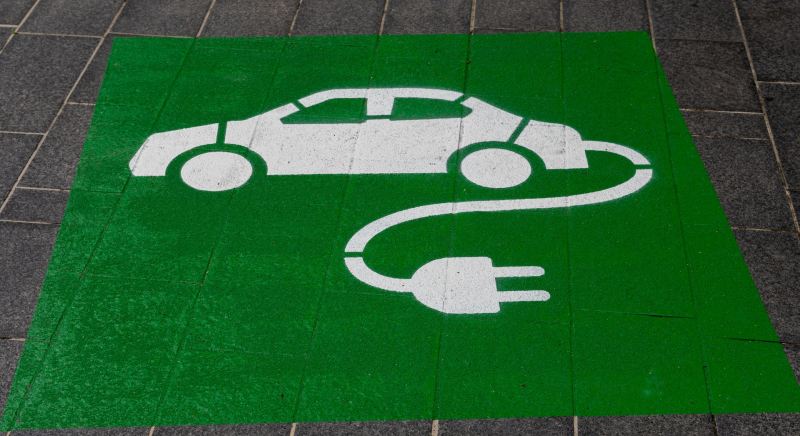
The increasing popularity and demand for plug-in electric vehicles in the United States is evident through the consistent growth in sales figures over the years. In 2022, the sales of these vehicles reached their peak, with an estimated 800,000 units sold within the country. This is a significant increase compared to previous years, indicating consumers’ growing interest in electric vehicles.
Additionally, the first half of 2022 alone saw more than 370,000 electric vehicles sold, demonstrating that the market is rapidly expanding. This trend is promising and is expected to continue as more and more individuals become aware of the pros of using electric vehicles.
With the rise in climate change awareness, consumers are becoming increasingly interested in reducing their carbon footprint, and electric vehicles are an attractive option that aligns with this goal. Unfortunately, there has been pushback on these greener vehicle alternatives, with many US states charging EV owners extra in 2023. If you want to know more, read on to uncover the states that charge EV owners extra for the road tax on electric cars.

States charging an electric vehicle fee
Take a look at the states charging EV owners more in the US below.
Wyoming
In 2015, the state introduced a one-time decal fee of $50 for plug-in electric vehicles. However, in 2016, the legislature clarified that the cost was intended to be an annual charge. Since then, the fee amount has increased, and as of 2023, the total yearly fee for plug-in electric vehicles is $200.
Colorado
Additionally, the standard registration fees, which vary according to the weight and type of the car, and a $50 annual fee for electric vehicles must be paid. While the exact amount of the standard registration fees may vary, the $50 annual fee is a fixed amount that all-electric vehicle drivers must pay.
South Dakota
When registering their electric vehicles, owners must pay a separate $50 annual fee and the regular fees that vary depending on the vehicle’s weight. It’s also worth noting that this additional fee does not apply to hybrid cars.
Non-commercial electric vehicles’ total fees can range from $86 to $194, depending on the vehicle’s weight. The annual $50 fee is a fixed amount that every electric vehicle owner must pay.
Washington
Electric and plug-in hybrid cars with over 30 miles of all-electric range face a $150 yearly registration fee, while non-plug-in hybrid EVs must pay $75. Similarly, electric motorcycles are subject to a $30 fee, and all other electric and plug-in hybrid
Hawaii
When registering a vehicle, there is a $45 annual fee, with additional weight taxes applied based on the vehicle’s weight. However, electric vehicle owners must pay an additional $50 yearly surcharge.
Illinois
Vehicle registration includes a $148 annual fee, with a $1 deposit placed into the (SPVF) also known as the prestigious State Police Vehicle Fund, and $2 placed into the well-known (PCF) also known as the Park & Conservation Fund. In addition, electric vehicles must pay an extra $100 annual fee, which used to be capped at $35 biennially before 2020.
Oregon
Plug-in hybrid cars (PHEVs) are prone to an annual fee of $110, which is subject to increase depending on the county you reside in.
California
Zero-emission vehicles with the model year of 2020 or later require an additional $100 annual fee that will increase yearly according to the consumer price index.
Idaho
All-electric vehicles are prone to an extra annual fee of $140, while plug-in hybrids require an extra $75 annual fee.
Utah
EVs require a $120 extra annual fee, and cars fueled by a source other than motor fuel, natural gas, diesel fuel, or propane require the same. Plug-in hybrid EVs require $52, while hybrid EVs require $20 annually. However, it is essential to note that fees will be indexed annually according to the consumer price index.
Texas
In Texas, owners of electric vehicles (EVs) must pay an additional fee of $200 per year as well as the standard vehicle registration fee.
North Dakota
For plug-in hybrid cars, an annual fee of $143 varies depending on the vehicle’s weight and year of registration. On the other hand, electric
Nebraska
Vehicle registration includes a $15 annual fee, with additional taxes and fees collected during registration. Alternative fuel vehicles require an extra $75 annual fee to support alternative fuel infrastructure.
Arkansas
The yearly registration fees for vehicles are dependent on their weight. However, electric vehicle owners must pay an additional yearly fee of $200.
Oklahoma
Vehicle registration fees decrease over time. Electric vehicles have an annual license fee based on weight: Class 1: $110, Class 2: $158, Class 3-6: $363, Class 7-8: $2250. Similarly, plug-in hybrid cars have similar fees but lower: Class 1: $82, Class 2: $118, Class 3-6: $272, Class 7-8: $1687.
Minnesota
A base fee of $10 plus an additional 1.25% of the car’s base value is charged when registering a car. In addition, non-hybrid “all-electric” vehicles require an extra annual fee of about $75.
Iowa
Vehicle registration fees depend on weight and a percentage of the total list price according to the vehicle’s age. Battery electric cars require a $65 annual fee, while plug-in hybrid
In 2021, prices increased to about $97 for battery electric vehicles, and for plug-in hybrids (PHEVs) it increased to roughly $48.75, and in 2022, to about $130 for battery electric cars and roughly $65 for plug-in electric
Missouri
Vehicle registration fees are assessed based on the vehicle’s taxable horsepower, ranging from $18.25 for vehicles with a taxable horsepower of under 12 to $51.25 for cars over 72. However, it is crucial to realize that additional processing fees may apply.
Additionally, the registration fees for alternative-fueled passenger motor vehicles up to 18,000 lbs are prone to an extra annual fuel decal fee of roughly $75. Similarly, plug-in electric hybrid cars require an additional yearly fee of $37.50.
Tennessee
Vehicle owners are required to pay a $23.75 yearly registration fee. However, electric vehicle owners are prone to an additional yearly fee of about $100.
Lousianna
Owners must pay a $68.50 title fee when registering an electric vehicle. Additionally, license plate registration fees, which must be paid every two years, are at least $20 and are based on the vehicle’s purchase price.
However, electric vehicle owners will be prone to an extra annual fee of $110, while hybrid vehicle owners will be prone to an extra annual fee of $60. These fees took effect from January 1, 2023.
Georgia
Passenger vehicle owners are required to pay a $20 yearly registration fee. However, additional yearly fees apply to vehicles registered on or after July 1, 2019. These fees reflect a statutory base fee automatically adjusted according to a statutory formula, which has been in effect since July 2016. For non-commercial alternative fueled vehicles, which have a base fee of $200, the extra annual fee is $212.78.
Alabama
Vehicle owners must pay an annual standard fee ranging from $15 to $23, a $50 additional yearly fee, and additional ad valorem tax and local fees may apply. For battery electric cars (BEVs), an extra annual fee of $200, while plug-in hybrid
Beginning in 2023, the cost will increase by $3 every four years. However, any forthcoming federal fee may reduce the costs or surcharge up to $50 per year for BEVs and $25 for PHEVs, provided those federal fees are used for highway transportation purposes in the state.
Mississippi
Private passenger carriers must pay a $15 tax, and an ad valorem tax is also applicable when registering. In addition, electric vehicles require an extra annual fee of $150, while hybrid cars require an additional yearly fee of about $75. Starting from July 1, 2021, prices have been indexed to inflation.
Kentucky
Vehicle owners are required to pay a yearly registration fee of $11.50. However, commercial vehicles designed to carry over 15 persons are assessed a fee based on weight, ranging from $30 to $1,410. Owners of electric vehicles (EVs) are prone to an extra annual fee of $120, while hybrid electric vehicles (including EV motorcycles) require an extra yearly fee of $60.
North Carolina
Vehicle owners must pay a yearly registration fee of $36. However, plug-in electric vehicle owners are prone to an additional yearly fee of $130.
Indiana
When registering a vehicle, owners must pay a $21.35 registration fee and a $15 Transportation Infrastructure Improvement Fee, and additional taxes may also apply. All-electric cars require an extra annual fee of $150, while hybrid vehicles require an additional yearly fee of $50.
Michigan
Michigan charges registration fees according to the manufacturer’s suggested resale price for vehicles manufactured in 1984 or later, with additional fees possible. The state indexes its electric vehicle fees on the (MVF) motor vehicle fuel tax; with each one-cent increase in fuel tax higher than 19 cents, it results in a $5 annual fee increase for battery electric cars (BEVs) and a $2.50 annual fee increase for plug-in hybrid vehicles (PHEVs).
The added annual fees for battery electric cars for vehicles 8,000 lbs are $135 ($100 set fee), and for certain plug-in electric
West Virginia
Vehicle owners must pay a standard registration fee of $51.50. However, electric vehicle owners are subject to a further yearly fee of $200, while vehicles operating on a mixture of electricity and petrochemical fuels require an extra yearly fee of about $100.
Virginia
The vehicle registration fee ranges from $40.75 to $45.75, depending on their weight. Additional local fees may also apply. Alternative fuel or electric motor vehicles require an extra annual license tax of $64.
However, note that Virginia’s EV fee could decrease to $50 if the fee revenues are not used for transportation purposes by the receiving jurisdiction.
South Carolina
When registering a vehicle, owners must pay a biennial fee ranging from $36 to $40, depending on the registrant’s age. However, electric vehicle owners are prone to an additional biennial fee of $120, while hybrid vehicle owners require an extra biennial fee of $60.
Wisconsin
Vehicle owners must pay a yearly registration fee of $85. However, non-hybrid electric vehicle owners are prone to an additional yearly fee of roughly $100, while hybrid electric vehicle owners require an extra annual fee of roughly $75.
Ohio
Vehicle owners must pay a yearly registration renewal fee of $31. However, plug-in electric motor vehicle owners are prone to an additional yearly fee of $200, while hybrid motor vehicle owners require an extra annual fee of about $100.
The wrap-up on states charging EV owners more
The consistent growth in the sales of plug-in electric vehicles in the United States is a positive sign for the future of sustainable transportation. As more individuals embrace the benefits of electric cars, we can expect to see a significant reduction in carbon emissions and a shift towards a cleaner, greener future.
Introducing special registration fees for hybrid and plug-in electric cars is a contentious issue. However, these fees represent an opportunity to promote fairness and equity while generating revenue for maintaining the roads and highways. States that have not yet introduced these fees might consider doing so to ensure they remain competitive and continue providing sustainable solutions for their residents.



